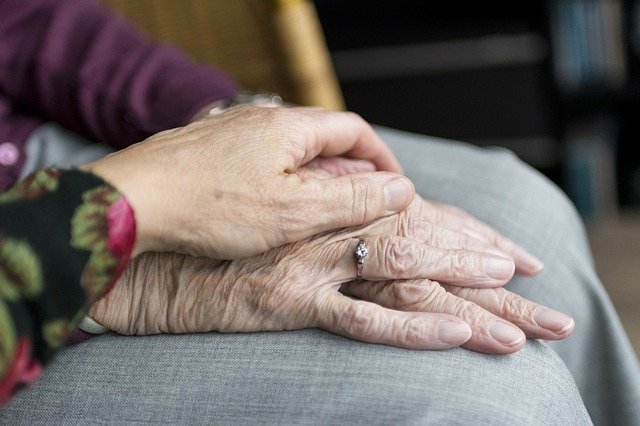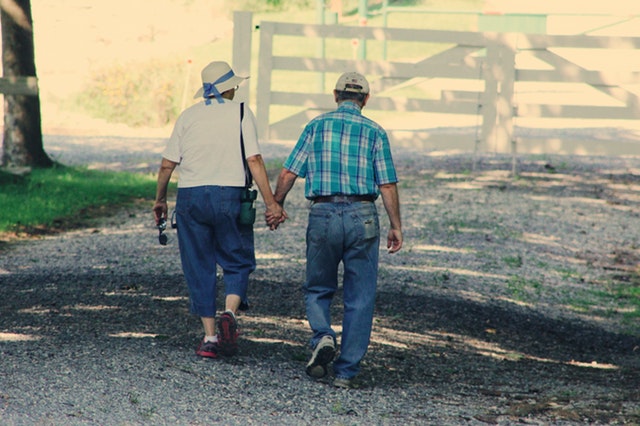Life Lessons: Caring for an Aging Parent

“If he needs me, I’ll move back to the US.” I said it for years – that if my dad ever needed looking after, I would gladly step up. I meant it, too, and I still do. He and Mom gave me a great start in life; I see this as my turn to pay him back in a way that really matters.
I’m not alone. According to a recent report by GoHealth, more than 30% of Gen Xers and more than 25% of Millennials are actively helping to manage their parent’s healthcare, whether by paying bills or selecting doctors and then scheduling and attending medical visits. Most of them stepped in, as I did, after a parent’s significant medical event, like a stroke or heart attack.
“The baby boomer generation is the second-largest in the country, and now many are finding themselves in a position of needing help from their adult children. For those in this role, over half were prompted following a parents’ significant medical event. “
GoHealth CEO & Co-founder Clint Jones
I knew all of that intellectually. You may too. But now that I am living it, there are life lessons I didn’t expect. Life lessons you should prepare for, if you made the same promise I made.
Primary caregiving is all-absorbing
Luckily for us, I left active work earlier this year. So I don’t have the responsibilities of a job, or the worries about getting permission to take a leave of absence. I’m also single, with no children. I have no other required demands on my time, except to take care of myself.
That’s fortunate, because from the moment he gets up in the morning till he falls asleep in the evening, and whenever he gets up at night for the bathroom, I am on. Watching, listening, talking, diverting, supporting. I love visits from his friends and physical therapists; not only are they good for dad, they give me time to take a bath.
And something as simple as a bath can lift your whole mood. I have about an hour each morning to do my own essentials – paying bills, contacting friends and the like. Beyond that hour, a quick bath might be my only “me” time in the day.
It’s hard to tell who the parent is sometimes
When I was a kid, dad had strong likes and dislikes. We had clear rules. Now he has those same strong opinions, but new rules to live by. He doesn’t like it, and he tries to bend the rules all the time. He can’t drive, but doesn’t want to accept it, so he keeps asking me for the car keys. I’ve become the gatekeeper: to the back yard, his girlfriend’s house, the outside world and all of its entertainment, distractions and dangers.
I have a new appreciation for how he and Mom felt when I was dating or running around with friends. I do my best to keep him both happy and safe. Life lesson: that’s a juggling act.
Life moves at a different pace

Between his age and the stroke, my fast-moving, fast-talking Dad is no more. He walks, talks, eats, and thinks at what he would once have called a snail’s pace. I’ve had to slow down to match him; rushing only gets him upset and raises the risk that he will fall.
There are positives to this. Slowing down gives us time to talk, read, look at photos and tell old stories…all according to dad’s schedule. I’ve been taking short videos when he tells stories from his childhood. I know I’ll value them even more after he’s gone.
Picking battles is a survival skill

Perhaps the most important life lesson of all. When to go out and where to go, what to wear, when to get up and go to bed are all opportunities for unexpected disagreements. But the biggest minefield is food. I do my best to give him a healthy diet. Does it really matter if he has ice cream twice today? No diabetes, no weight problem, and he’s still getting enough fruits, veg and protein each day, plus vitamins. After all, banana splits have fruit. What’s the harm?
Maybe those of you who are parents as well as children know this. I didn’t have the chance to learn, but I am certainly making up for lost time now. I have new respect for the parents of toddlers.
Decision-making is a right and a responsibility
There really is no one else who can make the hard decisions. Was he better off in rehab with more intensive PT, or home in familiar surroundings with a diet tailored to his likes as much as his needs? Which neurologist should we see? Is the PT and OT adding value anymore?
I’m better prepared for these decisions than many people, but they are still tough decisions. I seek out experts in each specific area, then I question, challenge, and pursue answers until I have complete information. Patient advocacy is more than a phrase.
It’s all worth it
Yes, I have dropped my life to be here. Yes, my days are now subsumed in taking care of someone else. Someone who doesn’t always like what I have to say, or want to do what I know is best for him. It’s not what either of us would have wished for.
And yes, it’s worth it. I know that Dad is being cared for by someone who loves and respects him, will maintain his dignity and keep him connected to the world. We laugh, tell stories, have little projects, and “get into trouble” together – always our favorite pastime. I cherish this time, because I know it won’t last forever. Being a child caregiver of an aging parent is a marathon, not a sprint. But like the marathon, it’s worth the run.



